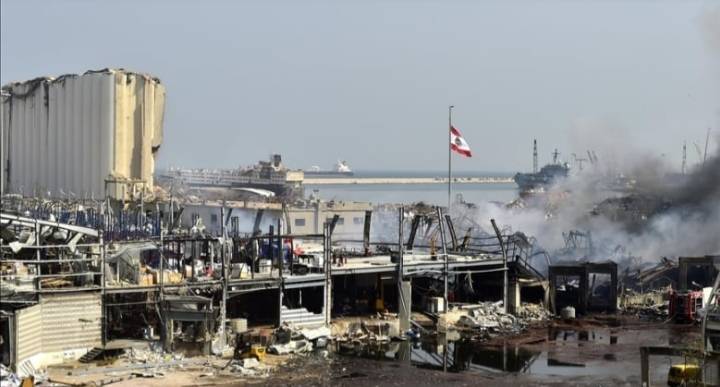The unexpected return of investigative judge Tarek Bitar, overseeing the Beirut port explosion case, has shocked the corridors of the Palace of Justice, with its repercussions extending to security and political headquarters. Bitar's move has raised questions about whether he has disregarded Lebanese laws and what basis he relied upon, given the requests for his recusal that are still pending.
While some analysts linked Bitar's decision to his recent meeting with a French judicial delegation, sources following the investigation file completely dismissed this notion, asserting that "Judge Bitar is not playing a political game." According to these sources, who spoke to the "Anbaa" electronic newspaper, "Bitar has studied his step for nearly three months and consulted legal experts both domestically and internationally, not politicians, to evaluate this exit." They also pointed out that it remains to be seen how the Supreme Judicial Council and the Public Prosecution's office will respond to what has transpired.
The sources noted that the "timing" of Bitar's decision is "more significant than the content, shrouded in much ambiguity and open to various interpretations, but we must wait to see what the coming days will reveal." From a legal perspective, constitutional and legal expert lawyer Said Malik stated in a call with the "Anbaa" electronic newspaper that "it is certain that the decision by Judge Bitar is based on the texts of the Code of Criminal Procedure and on more than ten years of case law."
According to Malik, the question that arises is "what circumstances or needs prompted Judge Bitar to issue his decision now, when he could have done so a year ago when he received the requests for recusal and challenge, raising several questions." He continued, "But today, the key issue is how these decisions will be executed. What will be the stance of the Public Prosecution regarding the implementation of the signals and decisions issued by the investigative judge, or will the Prosecution consider them issued by an invalid authority, especially since, according to the Prosecution's view, the investigative judge has not yet been able to proceed with the file due to the judicial disputes against him? Another question is what will be the position of the Minister of Justice, who appointed the investigative judge, and what will be the position of the Judicial Council that is aware of Judge Bitar’s decision and his resumption of work?"
In conclusion, Malik stated that "matters remain unclear up to this point, and we are waiting for the coming hours and days so we can determine the appropriate course of action." Will Judge Bitar's decisions be the wind that uncovers the embers lying beneath the ashes to reignite the streets once again?




